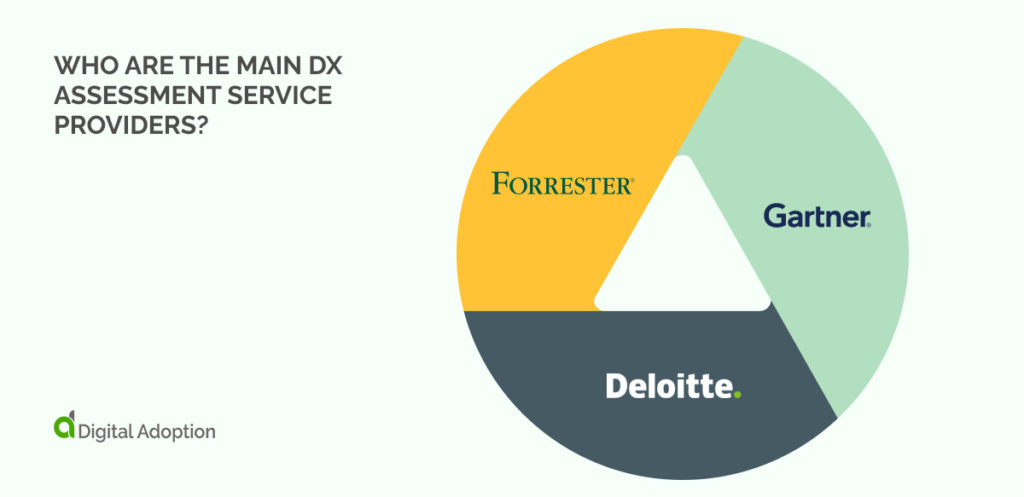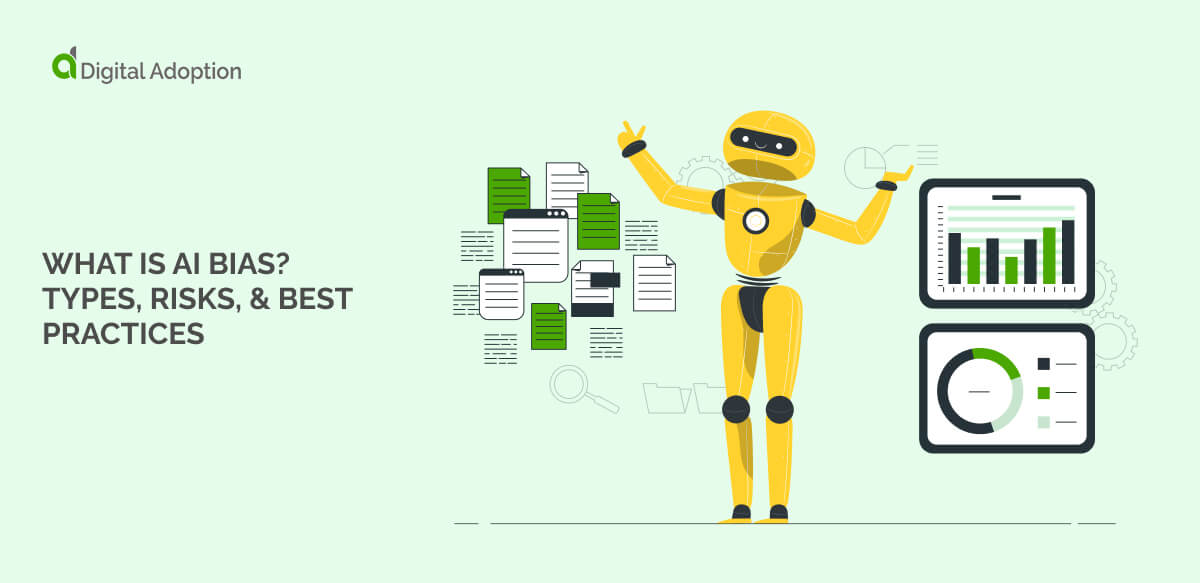Navigating the digital terrain, we recognize the profound impact of digital transformation on businesses.
Given the accelerating pace of technological advancements and the lingering effects of the COVID-19 pandemic, the ability to adapt to digital changes has become a make-or-break factor for organizations across industries. Yet, with the myriad of digital strategies and technologies available, determining which ones are truly effective can be a daunting task.
That’s where the power of comprehensive digital transformation assessments comes in. These tools are designed to cut through the complexity and provide a clear path forward. They evaluate the current state of your digital landscape, identify gaps, and help shape effective strategies for future growth.
In this article, we will present you with the only digital transformation assessment you need, the one that was extensively applied and fine-tuned. It’s a tried and tested tool, offering a robust and strategic approach to help businesses navigate their digital journeys effectively.
Join us as we delve into its nuances, and learn how you can leverage this tool to drive your organization’s digital success.
- Assessment: The Center of Digital Planning
- What Is A Digital Transformation Assessment?
- The Benefits of Assessing Digital Transformation
- Why Measuring Digital Maturity Is Critical for Digital Transformation
- Who Are The Main DX Assessment Service Providers?
- How To Perform A Digital Transformation Assessment
- Making a Digital Transformation Roadmap
- How The Principles Of Continuous Improvement Enhance DX Efforts
- Assessments Enable a Digital Transformation Strategy
Assessment: The Center of Digital Planning
A digital transformation assessment is important in preparing an organization’s digital transformation journey. The benefits of digital transformation can only be realized when there’s an excellent planning framework in place. An assessment provides key information to take company-wide digital adoption to the next level.
For companies seeking to employ new digital techniques, improve their current assets, or undertake a technology rationalization, a digital transformation assessment will be a vital step in their progress.
What Is A Digital Transformation Assessment?

A digital transformation assessment is a comprehensive review of an organization’s current digital capabilities and how they stack up against their desired future technology goals. It is used to identify areas where the organization can improve its digital strengths and identify any potential risks associated with making the transition.
A digital transformation assessment is often conducted by a third-party consulting firm, which can provide an unbiased and informed opinion on the organization’s digital capabilities and how they may need to evolve. This can help organizations make better decisions when implementing digital solutions.
The Benefits of Assessing Digital Transformation

A digital transformation assessment helps a business’s overall growth through a focus on digital implementation.
First, Assessing digital transformation can help organizations identify areas where they need to invest in technology and strategy to become more competitive. That might mean that they need to acquire more tools. But it could also mean they simply need to maximize their current assets using digital adoption platforms or other training techniques.
Secondly, the assessment ensures that a company’s digital business plans fit properly with its hopes for the coming years. A digital transformation assessment helps a company plan for future growth, new opportunities, and efficiency. The evaluation ensures that a digital business’s benefits are realistic and practical. By understanding the current state of their DX strategy, organizations can better prepare for upcoming shifts in the marketplace, such as new regulations or technological trends.
Ultimately, an effective strategy for assessing digital transformation is one more tool to help organizations maximize the return on their investments and increase market share.
Why Measuring Digital Maturity Is Critical for Digital Transformation
Whereas the idea of “digital adoption” measures how staff use software and technology, “digital maturity” tells a far more profound story about an organization’s culture. A digitally mature company uses its current assets effectively but is also prepared to leverage new solutions as they become available.
Finding the right digital maturity benchmarks is crucial to this exercise.
The assessment service provider will be able to assess digital maturity by asking questions about:
- Is the company currently meeting the goals of its digital transformation strategy?
- Do they have a track record of using new technologies to make improvements around the business?
- Do all team members recognize how innovative digital techniques can support process automation, customer experience, and the modernization of legacy assets?
- Can the business make quick and effective decisions about deploying new solutions?
- Does the business employ the right technical staff to implement new solutions in a changing technological landscape?
As this list shows, digital maturity covers a range of business activities. It’s essential for moving forward.
Who Are The Main DX Assessment Service Providers?

When companies seek to assess the state of their digital transformation journey, they will likely refer to outside IT consultancies to provide DX assessment tasks. These service providers can help companies identify areas needing improvement and create a roadmap for successful transformation.
Unlike software vendors, they have no vested interest in leading a company to one solution or another. The top providers prove their value through extensive research portfolios, demonstrating a clear understanding of the market and every organization’s ability to meet its digital transformation goals.
Three of the world’s top assessment providers are Forrester, Gartner, and Deloitte.
Forrester
Forrester Consulting is a well-respected research and advisory organization. Its comprehensive digital assessment services provide an in-depth analysis of organizational structure, processes, culture, and technology. Forrester’s assessment framework ensures that its services are tailored to the individual needs of organizations and their industry-specific challenges.
Gartner
Gartner’s unique research makes it a strong contender to execute any digital transformation assessment. They’ve been paying attention to the latest trends in business technology for a long time, allowing them to make informed assessments that work in businesses around the globe across many industries.
Deloitte
The UK-based professional services network Deloitte provides IT consultancy to companies worldwide. Deloitte’s assessment services are an excellent choice for organizations seeking to gain visibility into the current state of their DX initiatives.
How To Perform A Digital Transformation Assessment

Every consulting organization will have its unique digital transformation assessment process.
However, it’s essential to cover the following areas:
- Initial session: Define assessment scope, considering analysis breadth, timeline, and personnel.
- Follow-up: Align digital transformation efforts with current business plans, involving executives and specialist leaders.
- Evaluate the business structure’s readiness for digital transformation, including effective utilization of digital assets, staff engagement, and vendor collaboration.
- Assess how digital assets streamline internal processes and align with industry-leading solutions.
- Technical assessment may follow.
- Synthesize findings, presenting actionable recommendations to enhance operations within chosen business models.
Making a Digital Transformation Roadmap
The assessment review gives companies a tool to build their plans for the future.
Once the organization approves the preliminary review, the service provider can develop a roadmap for successful transformation. A digital transformation roadmap will include a timeline for implementing new technologies and processes and any other necessary changes. The service provider will then present their findings to the organization and make any further recommendations needed.
How The Principles Of Continuous Improvement Enhance DX Efforts

A DX assessment is a tool for continuous improvement. A company may have started its digital transformation journey with good intentions and well-laid plans. However, as implementation projects proceed, the path may change dramatically.
A company comfortable with investigating its operations and making changes will be in a much better place to maximize its investment in digital technologies. Agile methods are popular for a good reason. Organizations that employ the principles of continuous improvement can more easily adapt to changing market conditions and stay competitive in the digital economy.
Assessments Enable a Digital Transformation Strategy
Digital transformation can improve all aspects of a company’s business operations. From manufacturing to marketing, we can see great examples of how new technology and digital maturity can lead to better business results.
A digital transformation assessment is a primary part of that journey. They help to evaluate all kinds of operations within a business, establishing which practices are most effective and where the next challenge lies.
Models of digital transformation assessment are still developing. One 2020 study in the Journal of Production Research suggested that few current digital maturity models fulfill the critical criteria of “suitability, completeness, clearness, and objectivity.
But as time goes by and every process is refined, the assessment will become a more and more crucial part of DX for organizations of all sizes.













